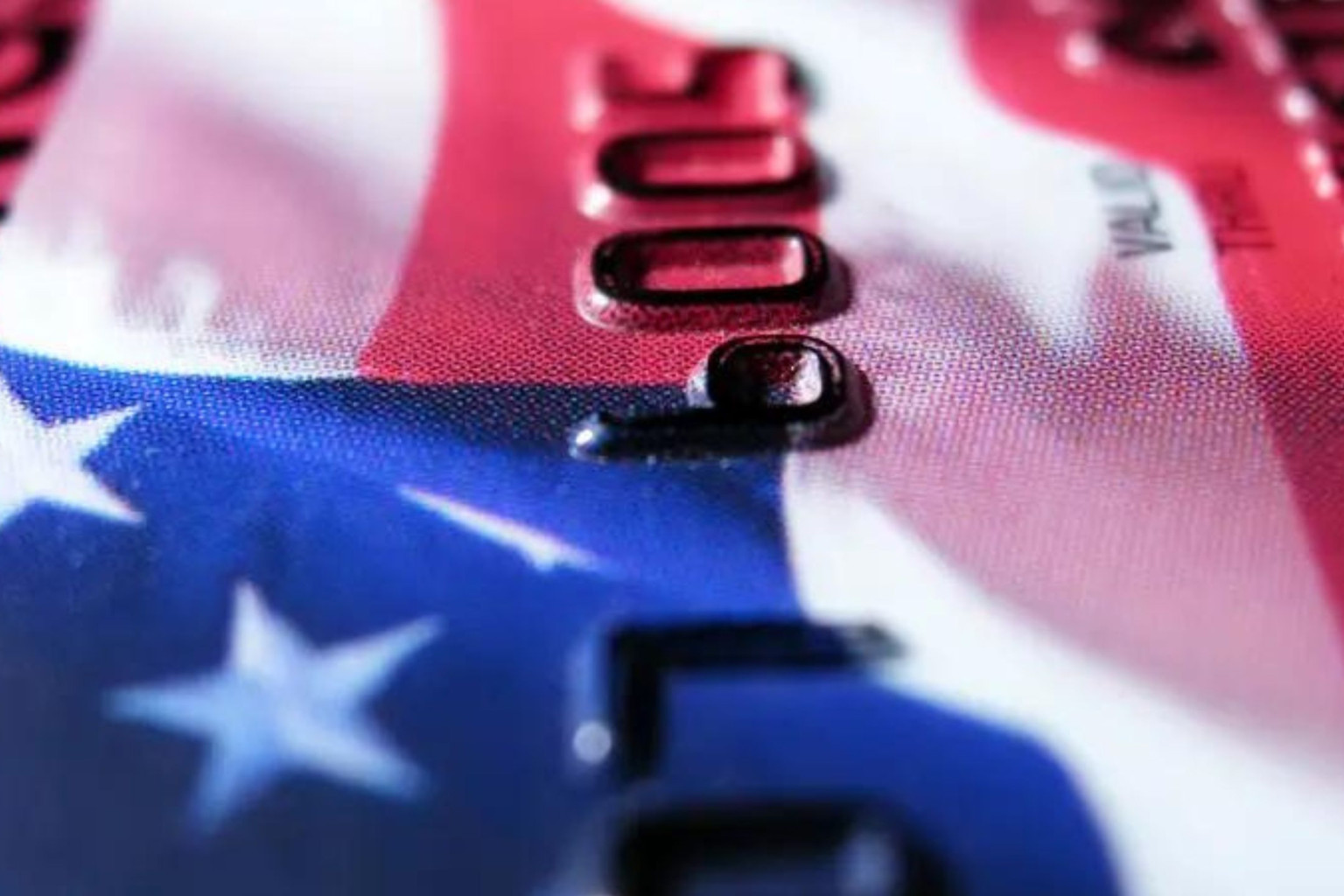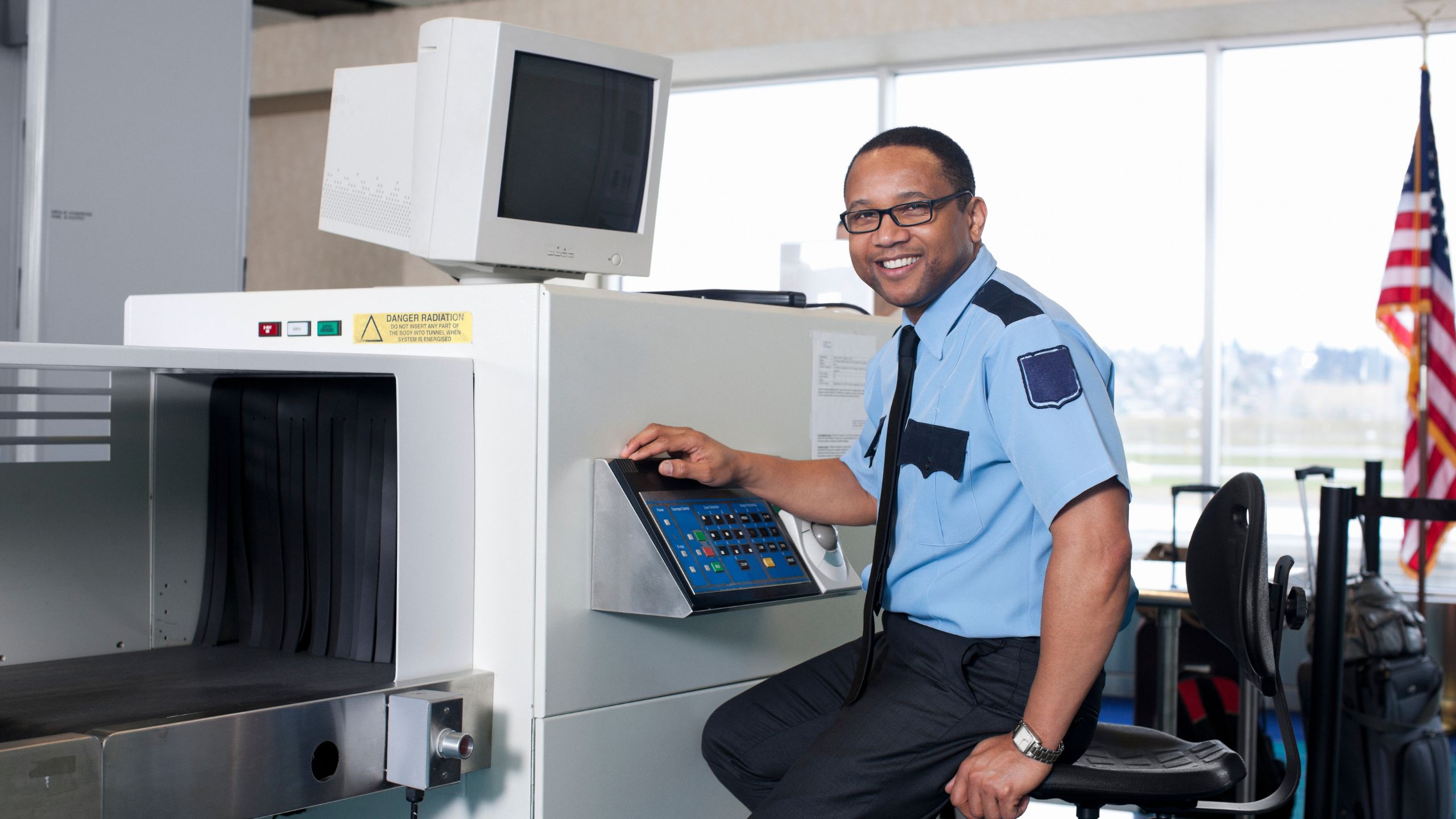Exchange programs with the USA are now an integral part of many training and study programs. The category of J-1 visas and the many exchange programs include internships or trainings as well as au pair and high school stays in the United States. Compared to other visa categories, the application for a J-1 visa is very complicated and subject to special conditions, which is why we are happy to assist you in obtaining a visa.
Visa category: exchange visa
Target group: students, pupils, graduates / young professionals, teachers, professors and more
Validity: depending on category 4 months to 5 years
Length of stay: tied to program duration
Characteristics: valid DS-2019 form from the visa sponsor required
A J-1 Visa (J-1 Exchange Visitor Visa) is required to participate in an exchange program in the USA. The J-1 visa allows foreign nationals to stay in the United States for a limited period of time for educational or training purposes.
There are a total of 15 different J-1 exchange visitor visas, depending on the applicant's requirements and the purpose of their stay. The training programs include, among others
TIP: A degree or student status is not always required.

The US government initiated these exchange programs to promote mutual understanding between the United States and other countries through these cultural and educational programs.
Internships and trainings are also not considered employment, but rather serve to exchange social and cultural characteristics in the corporate context and to familiarize themselves with corporate processes in the US branch. Under no circumstances may interns or trainees with J-1 visas engage in ordinary employment, perform unskilled labor or even replace the position of US employees on a part-time or full-time basis. Of course, the internship or training may be remunerated. In principle, "intern" programs must be remunerated for 6 months or more; "trainee" programs must always be remunerated.
The J-1 visa has a broader scope than the F-1 visa. If you are not sure which US visa is best suited to your plans in the USA, please contact our US Visa Service Team.
A total of 15 different J-1 categories are distinguished depending on the purpose of the stay. The following table provides an overview of which category corresponds to which travel purpose.
| J-1 CATEGORY | OVERVIEW |
| Au Pair |
|
| Camp Counselor |
|
| College and University Student |
|
| Government Visitor |
|
| Intern |
|
| International Visitor |
|
| Physician |
|
| Professor |
|
| Research Scholar |
|
| Secondary School Student |
|
| Short-Term Scholar |
|
| Specialist |
|
| Summer Work Travel |
|
| Teacher |
|
| Trainee |
|
Applicants who have already successfully completed an exchange program must wait a varying amount of time between multiple program participations, depending on the program and visa sponsor, and must remain outside of the United States during that time. Likewise, when changing from one J-1 category to another J-1 category, specific waiting periods and requirements apply before a J-1 visa can be successfully reapplied for. Please check with your exchange organization on a case-by-case basis.
These periods between exchange programs in the USA are not to be confused with the two-year home-country physical presence requirement, also known as two-year rule, imposed by the US authorities.
Regardless of this, the person must continue to qualify for the respective exchange program in the USA for further program participation or meet the qualifications of the (new) J-1 program if changing to another program.
If you arrange the J-1 visa processing through us, we will check all requirements with regard to the fulfillment of the J-1 visa requirements and the specifications of the J-1 visa sponsor.





Anyone applying for a J-1 visa must fulfill several requirements. On the one hand, there are general entry requirements that apply to all applicants, and on the other hand, there are category-specific entry requirements.
The first step is to address the general requirements.
A general entry requirement for visa applicants is the search for an official exchange organization, i.e. an approved J-1 Visa Sponsor, as the visa application can only be submitted via the exchange organization. Please note that there is no way to avoid the involvement of an exchange organization.
These organizations have been authorized by the U.S. Department of State to review the implementation of exchange programs in accordance with U.S. guidelines and therefore bear a very high level of responsibility for the program participants.
The US authorities list all approved J-1 exchange organizations for all J-1 categories.
Each year, the U.S. Department of State provides officially approved J-1 exchange organizations (Designated Sponsors) with a certain number of DS-2019 forms (Certificate of Eligibility for Exchange Visitor Status), which can be distributed to J-1 applicants.
The DS-2019 form is a numbered and limited form that cannot be filled out and downloaded from the Internet, but is only issued after a detailed evaluation of the applicant and the US institution. The DS-2019 form is issued using the Student and Exchange Visitor Information System (SEVIS). This web-based database allows both the U.S. Department of Homeland Security and the U.S. Department of State to directly view the data of all J-1 visa holders who are in the United States. SEVIS contains, among other things, information on the
Once the data has been entered into SEVIS, the exchange organization is responsible for keeping this data up to date throughout the duration of the stay and for making any necessary adjustments, e.g. in the event of an extension of the stay in the USA or a change of the US host company.
Such a DS-2019 form is mandatory in order to apply for a J-1 visa and can only be issued by the J-1 visa sponsor. The original DS-2019 form must be presented during the interview appointment at the US consulate or US embassy and should be carried throughout the program, as it will be required for each program-related entry into the US or extension.
Depending on which J-1 category is being applied for, additional documentation may be required (e.g., diplomas, proof of work-related experience, etc.).
The personal requirements for applicants (such as age and educational requirements) differ depending on the J-1 category applied for. The respective requirements for J-1 applicants are listed below:
Age: 18-26 years
Educational requirements:
Age: from 18 years
Educational requirements:
Age: from 17 years
Educational requirements:
Age: -
Educational requirements:
Age: from 18 years
Educational requirements:
Attention: Degrees obtained at US educational institutions are not recognized by the US authorities; this rule also applies to relevant work experience.
Age: -
Educational requirements:
Age: -
Educational requirements:
Age: -
Educational requirements:
Age: -
Educational requirements:
Age: from 15 to 18 years of age
Educational requirements:
Age: -
Educational requirements:
Age: -
Educational requirements:
Age: from 18 years
Educational requirements:
Age: -
Educational requirements:
Age: from 18 years
Educational requirements:
Attention: Degrees obtained at US educational institutions are not recognized by the US authorities; this rule also applies to relevant professional experience.
The host company in the USA must also fulfill certain requirements and provide documentation.
This includes, among other things, the creation of a detailed Training / Internship Placement Plans (DS-7002). The DS-7002 form is divided into different phases depending on the duration of the program and must reflect the different activities and areas of responsibility of the interns or trainees.
It is also important that the host company has a valid Worker's Compensation Insurance Policy and that the interns are also covered by this insurance.
Further admission requirements regarding the US location and applicants should always be obtained from the relevant exchange organization (J-1 Visa Sponsor).

For years, our J visa staff has been assisting companies and their young graduates worldwide with the very time-consuming and complex process of applying for an exchange visa to the United States. We are particularly specialized in the J-1 categories Intern / Trainee. In addition to the regular consulting and support during the entire application process, we offer the following services for the J visa application process:
We work together with the exchange organizations InterExchange and TravelWorks and are the interface between the main applicant, the company in the home country, the US host company, the US authorities and the exchange organization (J-1 visa sponsor).
J-1 visa holders may stay in the United States for the entire duration of the program, with the possibility of being in the US for up to 30 days before the exchange program begins and up to 30 days after the exchange program ends (Grace Period), for example to travel around the USA.
The J-1 visa can only be used for multiple entries if a "travel validation" has been noted on the DS-2019 form by the exchange organization. The travel validation is necessary because the visa is only valid in connection with the DS-2019 form (on which the specific period of the exchange program is noted).
For this reason, it is particularly important that the relevant exchange organization is contacted in good time if you are planning to travel. First, the original DS-2019 form must be sent to the organization by post. An authorized signatory then signs the DS-2019 once again to confirm that the J-1 visa holder is in good standing. This signature is valid for 6 months and allows the US immigration officers at the border to see directly that all program guidelines are met and that the visa holder may re-enter the country without any problems.
Please note that you must not leave the United States after the end of the program and during the grace period if you plan to re-enter the country afterwards. The DS-2019 form and the J-1 visa will already have expired, i.e. re-entry to the USA would theoretically be visa-free with the electronic travel authorization (ESTA). However, the risk of rejection by the US border officers would be too high.
The exact validity period of the J-1 visa depends on the duration of the program that is noted on the DS-2019. The visa is only valid in conjunction with a valid DS-2019 form.
The J-1 validity period varies greatly depending on the category applied for and varies between 4 months and 5 years. As an example: J-1 visas in the category Internal can be applied for a period of up to 12 months while J-1 visas of the category Trainee can be applied for a period of up to 18 months.
It is also important that the duration of an internship or training course must not be less than 4 weeks.
Generally, the period of validity of a visa does not automatically correspond to the duration of the permitted stay in the USA. The validity period of the visa defines the period between the issue date and the expiration date during which the applicant can apply for entry to the USA at the border. The period of validity is determined by the US embassy or consulate and is noted on the visa at the expiration date.

For the J-1 visa, the main applicant must pay a SEVIS fee as a first step (there is no SEVIS fee for family members applying for a J-2 visa). The amount of this fee varies depending on the J-1 category applied for:
In a second step, the J-1 consular fee in the amount of 166.50 € (185 $) per applicant is due.
Important: The payment of the SEVIS fee must be made before the visa appointment and cannot be made at a US embassy or US consulate. Otherwise, the J-1 visa application will not be processed.
The SEVIS fee is paid after the DS-2019 form has been issued using the SEVIS number or SEVIS ID. Payment of the I-901 Student and Exchange Visitor Information System (SEVIS) fee is usually made online at www.fmjfee.com (or by mail) by credit card, debit card, check, money order or Western Union Quick Pay. You must bring the I-901 payment receipt with you to your interview appointment at the US consulate / US embassy because proof of payment is a requirement for the issuance of the J visa.
The visa application fee of the US consulates and US embassies can be paid either by online bank transfer, online debit card payment or cash payment at a bank and must be paid by all J-1 applicants. The fee is non-refundable and non-transferable. Should there be any delay in your visa application, the proof of payment will remain valid for one year from the date of payment.

In addition, further costs may be incurred as part of the J-1 visa application:
You can find more information about the different visa fees, other possible costs and the current payment methods on our fees page.
Applying for a J-1 visa requires a thorough understanding of the process and careful planning of the necessary steps. From choosing the right visa type depending on the purpose of your trip, there are many important aspects to consider, from filling out the application forms correctly to preparing for the personal visa interview.
The following section explains the individual steps for applying for a J-1 visa for the USA and provides guidelines for successful visa application.
J-1 applicants must find an exchange organization as a first step, as J-1 visas can only be applied for with a so-called J-1 visa sponsor.
Generally, J-1 applicants between the ages of 14 and 79 must go through the consular procedure. This means that, in most cases, the J visa is issued as part of a personal interview in a responsible US mission (US consulate or US embassy) in the home country.
All requirements for applicants and all necessary documents must be fulfilled or available in advance of the visa application.
In our experience, the application for the J-1 visa, from the preparation to the examination by the US authorities to the receipt of the visa, takes in most cases at least 10 to 12 weeks.
Depending on the category, application documents for J-1 visas include very different documents relating to the applicant and the US institutions (e.g. educational institution). For "Intern" and "Trainee", a large number of documents relating to the applicant and the US host company are required.
Visa processing is a very complex and time-consuming process, which is why the application should be initiated as early as possible. The reason for this lengthy process is that the J-1 visa must not only be applied for at the US consulate / US embassy, but also with the help of an exchange organization (J-1 visa sponsor). After a check of the applicant and, if applicable, the US institution, the form DS-2019 ("Certificate of Eligibility for Exchange Visitor (J-1) Status") is finally issued, which in turn is mandatory for applying for a J-1 visa.
The J-1 application period also depends on the waiting time until the interview appointment. The availability of visa interview dates for the J-1 category depends on the respective US consulate or US embassy and the season.
You should therefore start your J-1 application as early as possible, especially during peak travel times with long waiting times.
Normally, applicants will be informed immediately after the visa appointment whether their J-1 visa has been approved. In this case, the passport will be retained and sent by post to a specified address or pick-up station within approximately 1 week after the interview, together with the J-1 visa.
Certain J-1 applicants can apply for the Interview Waiver Program and are therefore exempt from the interview appointment requirement. Please allow approximately 2 weeks for the processing time of the postal visa application.
Attention: In some cases, a further security check (Administrative Processing), which can take several months. This can considerably delay the visa application.
The following steps are necessary to apply for a J-1 visa for the USA:
J-1 visas can only be applied for with a so-called J-1 visa sponsor. These exchange organizations represent the extended arm of the U.S. Department of State and are responsible for implementing the programs in accordance with US guidelines.
As mentioned before, the J-1 visa sponsor must first issue form DS-2019 (Certificate of Eligibility for Exchange Visitor (J-1) Status), which is mandatory when applying for a J-1 visa. The DS-2019 form is a numbered and limited form that cannot be downloaded from the Internet, so involving an exchange organization cannot be avoided under any circumstances. The US authorities provide a list of designated exchange organizations available for the different J-1 categories.
We have been cooperating very successfully for many years with the visa sponsors InterExchange and TravelWorks for the categories "Intern" and "Trainee" and act as an interface between the main applicant, US company, US authorities and exchange organization (J-1 visa sponsor) during the application process.
Depending on the category and visa sponsor, further specific requirements must be met. Applicants should ask the respective exchange organization about this.
For the "Intern" and "Trainee" categories, for example, the Training / Internship Placement Plan (DS-7002) plays a central role in the application process as the basis for the DS-2019 form. This plan must be completed by the host company in the USA.
The next step to the "actual" J-1 visa application is to fill out the electronic visa application form DS-160 on the website of the U.S. Department of State.
The online application form must contain detailed information about the applicant and the planned stay in the USA. You should have the following information and documents ready when completing the online DS-160 form:
Normally, you can check the status of your visa application online a few days after submitting your DS-160 form.
Did you know? The professional processing and return of your DS-160 is part of our service offer.
You create an individual visa profile on the website of the Visa Information Service which is used for processing J-1 visa applications.
The visa processing fee is paid via the online profile and the appointment for the visa interview can also be arranged via the online profile.
If you commission us with the visa processing, our US Visa Service Team will create the required online profile on your behalf, disburse the consular visa application fee and arrange the appointment for the personal interview with the US consular officers. In this way, we relieve you as the applicant or your HR department.
On the day of the interview, you must appear in person at the US consulate or US embassy. Your documents will be checked there and you will have an interview with the US consular officers.
The following documents must be prepared and brought along for the appointment at the US consulate or US embassy:
Be prepared to answer questions about your visa application, your planned stay in the US and other relevant topics.
J-1 visa applicants are usually told at the end of the interview at the US consulate or US embassy whether or not their visa application will be approved.
Our visa consultants will prepare you individually for your visa appointment in advance and ensure that you are equipped with all the necessary documents to make your visa interview as smooth as possible.
After your J-1 visa application has been approved, you will receive your passport with the J-1 visa back by post or you can arrange a pick-up appointment.
The J-1 visa contains a variety of information that identifies the visa holder and defines his or her rights and restrictions while in the United States.
It is important that you carefully review this information after your J-1 visa has been issued and ensure that you meet the requirements of your intended stay in the United States.

Here are some of the dates and details that can be found on a J-1 visa:
The US consulates or US embassies are responsible for issuing visas.
The decision on whether or not to issue a visa for the USA is usually made by the US consular officers on the day of the visa interview. J-1 visa applicants will therefore normally find out at the interview appointment whether the visa will be issued or not.
You can check the status of your US visa application online. Normally there are the following options:
Your J-1 exchange visa was granted verbally by the US officers during the visa interview and is now being processed.
After the J-1 visa has been affixed to the passport and thus issued, the passport with the corresponding US visa will be sent by post (to a delivery address or pick-up station).
In some cases, US consular officers will initially deny the J-1 visa under Section 221(g) of the Immigration and Nationality Act (INA) and thus not approve the visa immediately. The consequence of this is the so-called Administrative Processing. The US visa application therefore requires a further security check and is subject to additional processing steps. Further documents or information may be required from you.
If the US officers conclude that you do not qualify for the J-1 category, your J-1 visa to the US will be denied. A reason for the denial is not required, but applicants usually receive further instructions on the day of the interview or a denial letter after a processing period.
The grounds for refusal vary depending on the visa category and applicant (e.g. presumption of intent to immigrate, presumption of illegal employment, incorrect application documentation).
First of all, it is important to know that after a visa refusal a new J application can be submitted immediately. In theory, there is therefore no waiting period until the next application.
In our experience, a new application in the same category is only advisable if the conditions or circumstances have changed since the first application and these changes can be documented.
Applying for a new visa makes little sense if the requirements of the visa category (e.g. proof of intention to return, language skills, etc.) are not met. As a rule, a new J-1 visa can therefore only be successfully applied for after several months or years.
After a rejection, it is necessary to restart the visa application completely. In addition, under certain circumstances, a different visa category (e.g. F-1 visa) should be considered, which should be checked carefully. However, it is not possible to appeal against a visa refusal.
The consequences of a refused J-1 visa for the applicant depend on the reason for refusal.
Although the US authorities are not obliged to explain the reasons for a refusal, you can politely ask the US consular officers about the reasons for visa refusal. This information may be helpful if you intend to reapply for the J-1 visa.
For a second application for a J-1 visa, it is advisable to prepare it carefully and convincingly. This includes selecting the appropriate category, filling out the DS-160 online form correctly and completely and providing convincing supporting documents.
Many applicants are convinced that they can enter the United States without any problems due to the approved US visa. However, a J-1 visa in your passport does not constitute automatic permission to enter the United States. A US visa is not legally considered a residence permit, that means that even with an approved visa there is no guarantee of entry into the United States. A valid US visa only entitles the holder to apply for entry into the US at the border crossing (e.g. airport).
The decision on entry lies with the border officers who check the US visas of foreign persons on arrival. The U.S. Customs and Border Protection officers have the final authority and determine whether and for how long a person may stay in the USA. There is also the possibility that entry will be denied.
If you have successfully entered the USA, it is recommended that you check the digital I-94 or the entry stamp in your passport to see how long you are legally allowed to stay in the USA (= status).

Tip: With Global Entry, biometrically registered and security-checked travelers can complete entry formalities independently and automatically at almost all major US airports. This means you can avoid long waiting times and enter the USA much more quickly.
The period of validity of a visa cannot be extended, regardless of the visa category. From a technical point of view, this is a new application.
However, depending on the J-1 category, it is possible to apply for a new J-1 visa in good time before or after the expiry of an old J-1 visa. As long as the applicant fulfils the J-1 requirements (e.g. is enrolled at a university or is in training), the J-1 visa can be applied for as often as required. However, an extension of the internship ("Intern" category) or training ("Trainee" category) is only possible if the total duration of 12 or 18 months is not exceeded.
For certain J-1 categories, applicants must allow a certain period of time to pass between reapplications (e.g. 2 years for the "Trainee" category). This rule applies, for example, to applicants who have already held J-1 visas in the "Intern" category and wish to apply for the J-1 "Trainee" visa at a later date.
Please note that the remaining period of validity of your old visa will not automatically be transferred to the new visa. Furthermore, a previous J-1 visa is no guarantee for a new visa approval. All required documents (forms, supporting documents, etc.) must be resubmitted to the US consulate / US embassy.
It is therefore advisable to prepare the application thoroughly and to check that all necessary documents are complete in order to avoid possible delays or rejections during the extension process or reapplication.
If you are planning to reapply for a J-1 visa, it is important to take into account the different processing times of the respective US consulates and US embassies. You should therefore allow sufficient time.
In contrast to the first J-1 visa application, the mail-in procedure could possibly be considered. The Interview Waiver Program allows certain applicants (including those between the ages of 14 and 79) to apply for a J-1 visa under strictly regulated conditions without a personal interview at the US consulate or US embassy. This means that the visa application can also be submitted by post under certain conditions.
Spouses and unmarried children under the age of 21 will receive a derived J-2 visa for the same period as the main applicant and may travel to the United States. Applicants for a J-2 visa always require a separate DS-2019 form, which is also issued by the J-1 visa sponsor.
If the children reach the US age of majority or marry, they must change their nonimmigrant status or leave the United States.
Both accompanying spouses and unmarried children up to the age of 21 can apply for their own work permit (Employment Authorization Document, EAD). The EAD is not tied to a specific work place or the host company of the main applicant.
Attention: The employment of the spouse or children must not demonstrably serve to cover the living costs of the main applicant.
Holders of a J-2 visa may also attend public or private educational institutions, e.g. schools and universities.

No. The application for a J-1 visa can only be made via an officially approved exchange organization. It is therefore essential to find a suitable J-1 visa sponsor, i.e. an exchange organization or agency, before submitting the visa application. The US authorities provide a list of designated exchange organizations.
The J visa entitles its holders to participate in an exchange program.
Activities during an internship or traineeship may be remunerated, but ordinary employment or unskilled labor is strictly prohibited.
Depending on the category, exchange organizations charge a minimum age of 18 years (with the exception of the "Secondary School Student" category, where a minimum age of 15 years is sufficient).
Apart from the "au pair" category, which is subject to a maximum age limit of 26 years, there are no upper age limits set by the U.S. Department of State (DOS). The U.S. Department of State has specific and very strict guidelines regarding the J-1 visa, but the entry requirements of the exchange organizations vary considerably. For example, setting an age limit for participants in a particular category is at the discretion of the visa sponsor. Therefore, you should always consult with the J-1 visa sponsor who will ultimately issue the DS-2019 form.
If you do not qualify for the desired J-1 category due to your age, your planned stay in the USA may be possible with a different US visa.
In the case of an in-house training, for example, you can check whether the B-1 visa (Business Visitor) could be an alternative to the J-1 visa.
Whether a high school diploma is a requirement for obtaining a J-1 visa depends on the respective category.
To qualify in the "Internal" category, the applicant must be enrolled as a full-time student at a university (outside the USA) or have successfully completed their studies at such a university within the last twelve months.
One of the following qualifications is required for the "Trainee" category:
In principle, it is possible to employ interns or trainees at several US locations, provided that each of the individual US locations meets the specific requirements of the exchange organization. Among other things, the number of interns and trainees must be in an appropriate ratio to regular employees in order to ensure professional supervision by sufficient staff.
It is important that this so-called "company transfer" is noted in advance in the Training / Internship Placement Plan (DS-7002) with the corresponding US branches and US addresses. Please also note that this company-internal transfer is only possible within the company group; a longer-term transfer to a customer's location is not permitted under any circumstances. Interns and trainees accompanied by the supervisor of the US host company may of course attend business meetings at the customer's premises or customer visits outside the specified US location.
Wir und unsere Partner nutzen Cookies, um personenbezogene Daten wie z.B. Browsing-Daten zu speichern und abzurufen, um z.B. Inhalte und Werbung bereitzustellen und zu personalisieren sowie die Verwendung der Website zu analysieren und das Benutzererlebnis zu verbessern. Sie erfahren mehr über die Zwecke, für welche wir und unsere Partner Cookies einsetzen, wenn Sie unten auf den Button „Cookie Einstellungen“ klicken. Hier können sämtliche Einstellungen auch geändert werden. Nachträglich kann man jederzeit seine Cookie-Auswahl überdenken oder seine Einwilligung widerrufen, indem man auf den Link zu den Cookie-Einstellungen im Footer unserer Webseite klickt. Beachten Sie bitte, dass das Blockieren einiger Cookie-Typen unsere Möglichkeiten zur Bereitstellung von auf Ihre Interessen zugeschnittenen Inhalten haben kann oder einige Funktionen der Webseite nur eingeschränkt zur Verfügung stehen.
Durch klicken auf “Alle Cookies akzeptieren” stimmen Sie unserer Nutzung und der Weitergabe Ihrer Daten an unsere Partner zu.